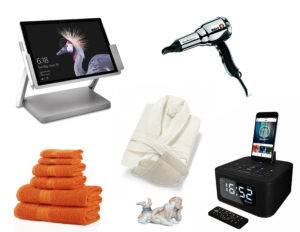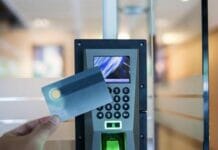Hotel Theft Prevention refers to the implementation of strategies, measures, and protocols aimed at reducing the risk of theft incidents within hotel establishments. It involves a comprehensive approach that encompasses physical security measures, staff training, guest education, and technology integration to create a safe and secure environment for guests and protect their belongings. The goal of hotel theft prevention is to deter theft incidents, minimize financial losses, maintain guest satisfaction, and safeguard the reputation and profitability of the hotel. By proactively addressing vulnerabilities and implementing robust security measures, hotels can create an environment that promotes guest safety, trust, and peace of mind.
Hotel Theft Prevention: Ensuring Guest Safety and Security
Introduction
In the hospitality industry, hotel theft prevention is a paramount concern to ensure the safety and security of guests and protect the reputation and profitability of the establishment. Hotel theft can take various forms, including room theft, luggage theft, identity theft, and credit card fraud. Implementing robust hotel theft prevention strategies is crucial to creating a secure environment for guests and maintaining their trust. In this comprehensive guide, we will explore best practices, expert insights, and innovative technologies to help hotels safeguard their guests and prevent theft incidents.
Download Hotel Theft Prevention Software
Hotel Theft Prevention: A Top Priority
Hotel theft prevention has become a top priority for hotels worldwide due to the potential impact on guest satisfaction, business reputation, and financial losses. Hotels are responsible for providing a safe and secure environment where guests can feel confident about the safety of their belongings. Effective hotel loss prevention involves a multi-layered approach that includes physical security measures, staff training, advanced technology, and proactive guest education.
RFID UHF (Ultra-High Frequency) Technology For Hotel Theft Prevention

Hotel theft prevention using RFID UHF (Ultra-High Frequency) technology refers to the utilization of RFID technology operating on the UHF frequency range to enhance security and minimize the risk of theft incidents within hotel establishments. RFID UHF technology enables efficient tracking and monitoring of assets, including guest belongings and hotel inventory, using radio waves for identification and data transmission.
By integrating RFID UHF technology into hotel theft prevention systems, hotels can achieve the following benefits:
- Enhanced Asset Tracking: RFID UHF tags can be attached to guest belongings and high-value hotel assets, allowing for real-time tracking and monitoring. This enables hotel staff to quickly locate items and identify any unauthorized movements or removals. More information about hotel theft prevention system click here.
- Efficient Inventory Management: RFID UHF tags can be applied to hotel inventory items, such as linens, uniforms, and equipment. This enables automated inventory management, reducing the risk of loss, ensuring accurate stock levels, and streamlining procurement and restocking processes.
- Access Control and Keyless Entry: RFID UHF technology can be employed to provide secure access control and keyless entry systems. Guests can use RFID-enabled key cards or wristbands to access their rooms, restricted areas, and amenities, minimizing the risk of unauthorized entry or theft incidents.
- Guest Identification and Authentication: RFID UHF technology can enhance guest identification and authentication processes. Guest information stored in RFID tags can be accessed by hotel staff for verification purposes, ensuring that only authorized individuals have access to hotel facilities and services.
- Loss Prevention and Anti-Theft Measures: RFID UHF tags can be discreetly embedded in valuable assets or attached to high-risk items prone to theft, such as artwork or high-end electronics. This allows for continuous monitoring and immediate detection if any tagged items are moved beyond designated areas without authorization.
- Efficient Check-In and Check-Out Processes: RFID UHF technology enables quick and seamless check-in and check-out processes. Guests can simply wave their RFID-enabled key cards or wristbands near designated readers, reducing wait times and enhancing overall guest experience.
By leveraging RFID UHF technology for hotel loss prevention, hotels can enhance security, reduce theft incidents, improve operational efficiency, and provide guests with a safe and secure environment. It is important for hotels to carefully plan and implement RFID UHF systems, considering factors such as tag placement, reader coverage, data encryption, and system integration to ensure the effectiveness and reliability of the technology in preventing theft and enhancing overall guest satisfaction.
Download Hotel Theft Prevention Software
The Impact of Hotel Theft

Hotel theft can have significant consequences for both guests and hotel establishments. Here are some key ways in which hotel theft can impact:
- Guest Experience: Theft incidents can result in a negative guest experience, causing distress, inconvenience, and a loss of trust in the hotel.
- Reputation Damage: News of theft incidents can quickly spread through reviews and social media, tarnishing the hotel’s reputation and potentially deterring future guests.
- Financial Loss: Theft incidents can lead to financial losses for both guests and the hotel. Guests may incur costs to replace stolen items, while hotels may face legal liabilities and potential compensation claims.
- Legal Consequences: Hotel theft can have legal ramifications, requiring hotels to address liability issues, cooperate with law enforcement, and potentially face lawsuits.
Given these potential impacts, it is imperative for hotels to prioritize and invest in comprehensive hotel theft prevention measures.
The Key Components of Hotel Theft Prevention
Effective hotel theft prevention involves a combination of physical security measures, staff training, guest education, and technology integration. Let’s explore each component in detail:
1. Physical Security Measures
Physical security measures form the foundation of hotel theft prevention efforts. These measures include:
- Surveillance Systems: Installing high-quality surveillance cameras in common areas, hallways, and other vulnerable locations to monitor and deter potential thieves.
- Access Control Systems: Implementing access control systems, such as electronic key card systems, to restrict unauthorized access to guest rooms and other secure areas.
- Secured Storage: Providing secure storage options, such as in-room safes or a dedicated guest secure storage room, for guests to store their valuable belongings.
2. Staff Training
Comprehensive staff training is essential to empower hotel employees to identify and prevent theft incidents. Key training areas should include:
- Guest Interaction: Training staff on recognizing suspicious behavior, addressing guest concerns, and ensuring a welcoming and secure environment.
- Emergency Response: Equipping staff with the necessary knowledge and protocols to respond promptly and effectively in the event of a theft incident.
- Communication and Reporting: Educating staff on the importance of timely reporting and communication to appropriate authorities and management.
3. Guest Education
Proactively educating guests about hotel theft prevention measures can enhance their awareness and cooperation in maintaining their own security. Key aspects of guest education include:
- In-Room Information: Providing written materials in guest rooms that highlight hotel security features, offer theft prevention tips, and encourage the use of in-room safes.
- Digital Communication: Leveraging digital platforms, such as hotel websites or mobile applications, to share security information, tips, and emergency contacts with guests.
4. Technology Integration
Leveraging advanced technologies can significantly enhance hotel theft prevention efforts. Some key technologies to consider include:
- RFID Key Cards: Implementing RFID key cards that provide enhanced security features, such as encryption and tracking capabilities, to prevent unauthorized access.
- Video Analytics: Utilizing video analytics software to identify suspicious behavior patterns, such as loitering or unusual movement, and alert security personnel.
- Digital Surveillance: Integrating digital surveillance systems with advanced features like facial recognition to enhance identification and tracking of potential thieves.
Hotel Theft Prevention FAQs
FAQ 1: What are the common targets of hotel theft?
Common targets of hotel theft include guest rooms, where thieves may steal valuable items such as cash, jewelry, electronics, and passports. Common areas like lobbies, restaurants, and fitness centers are also vulnerable to theft of personal belongings.
FAQ 2: How can hotels protect guest privacy while implementing security measures?
Hotels can protect guest privacy by striking a balance between security and guest comfort. This can be achieved by ensuring discreet placement of surveillance cameras, respecting guest confidentiality, and using technology that enhances security without compromising privacy.
FAQ 3: How can hotels handle theft incidents without causing guest inconvenience?
Hotels should have clear protocols in place to handle theft incidents promptly and efficiently. This includes providing immediate assistance to affected guests, cooperating with law enforcement, conducting thorough investigations, and offering appropriate compensation or support to minimize guest inconvenience.
FAQ 4: Can technology completely eliminate hotel theft?
While technology plays a crucial role in hotel loss prevention, it cannot completely eliminate the risk. A comprehensive approach that combines technology, staff training, guest education, and physical security measures is necessary to minimize the risk of theft incidents.
FAQ 5: How can hotels encourage guest participation in theft prevention efforts?
Hotels can encourage guest participation by providing clear information about hotel security measures, offering theft prevention tips during check-in, and creating a welcoming environment where guests feel comfortable reporting any suspicious activities or concerns.
FAQ 6: How often should hotel staff receive theft prevention training?
Hotel staff should receive regular and ongoing theft prevention training to stay updated on the latest security protocols, emerging threats, and best practices. Training sessions can be conducted annually or more frequently as needed.
Conclusion
Hotel theft prevention is of utmost importance in ensuring guest safety, maintaining a positive reputation, and protecting financial interests. By implementing a comprehensive approach that includes physical security measures, staff training, guest education, and technology integration, hotels can create a secure environment that deters theft incidents and fosters guest trust. Prioritizing hotel loss prevention not only safeguards guests and their belongings but also contributes to the long-term success and profitability of the hotel establishment.
Contact us today to protect your hotel from theft Fresh USA, Inc.






